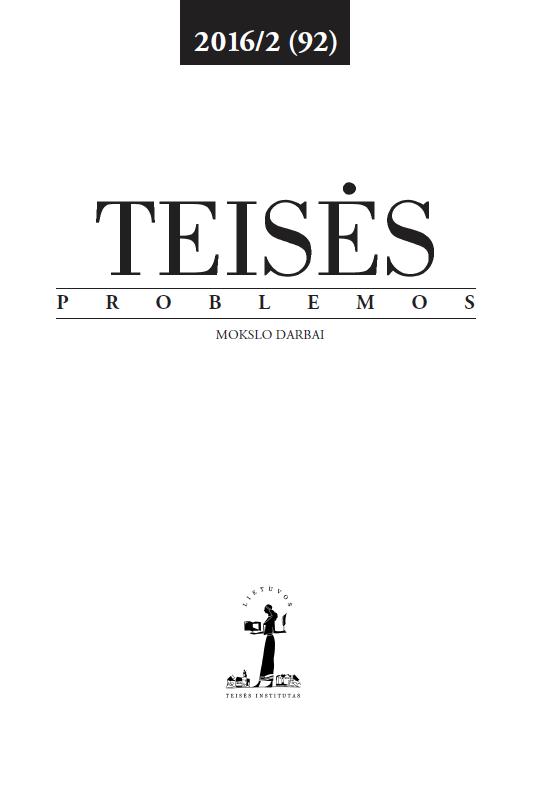Energinio efektyvumo teisinis reguliavimas ir taikymo ypatumai
Legal Reguliation and Implementation Issues of the Energy Efficiency
Author(s): Kristina BernotaitėSubject(s): Energy and Environmental Studies, Law on Economics, EU-Legislation
Published by: Lietuvos teisės institutas
Keywords: energijos vartojimo efektyvumas; energinio efektyvumo priemonė; centralizuotas valstybės turto valdymas; galutinė energija; sutaupyta energija;
Summary/Abstract: Despite the started „Energy 2020 strategy” in 2010 and the European Commission statement that „Energy efficiency is the most cost effective way to reduce emissions, improve energy security and competitiveness, make energy consumption more affordable for consumers as well as create employment, including in export industries” proposed year later, the a Directive on energy efficiency (EED), which entered into forced on 4 December 2012, in Lithuania is still under development and harmonization with Lithuanian law system. This article presents author opinion of national stakeholders’ at Member States’ level, gathered during analysis and practical experience in the sector. The article is a first step to analyse the overall legal and political context of energy policy of the EU implementation in Lithuania, as well as of the Energy Efficiency Directive and its implementation in the country in particular. Key findings and recommendations presents as a main elements of the analysis provided in five main parts starting from the issues with a wide range of analysis of the EED and by propos¬ing for energy efficiency implementation provisions, procedures, conditions in Lithuania. The article based on a legal and political basis for energy policy and energy efficiency in the EU and Lithuania before and after the Energy Efficiency Directive entered into force. Direc¬tive 2012/27/EU establishes a common framework of measures for the promotion. Entered into force Directive of energy efficiency within the European Union in order to ensure the EU 2020 20 per cent headline target on energy efficiency declared as a aim to achieved, and to pave the way for further energy efficiency improvements beyond that date. It also laid down rules designed to remove barriers in the energy market and overcome market failures that impede efficiency in the supply and use of energy, and provides for the establishment of indicative national energy efficiency targets for 2020. The requirements laid down in the EED were the minimum requirements for Member States. However, Lithuania was not and is not prepared for even minimum reducing energy consumption requirements. To achieve this, each Member State were obligated to set an indicative national energy efficiency targets, based on either primary or final energy consumption, primary or final energy savings, or energy intensity. Moreover, according this article analysis, the author states that no one of requirements were not correctly implemented or implemented by the full scope
Journal: Teisės problemos
- Issue Year: 2016
- Issue No: 92 (2)
- Page Range: 5-44
- Page Count: 40
- Language: Lithuanian

